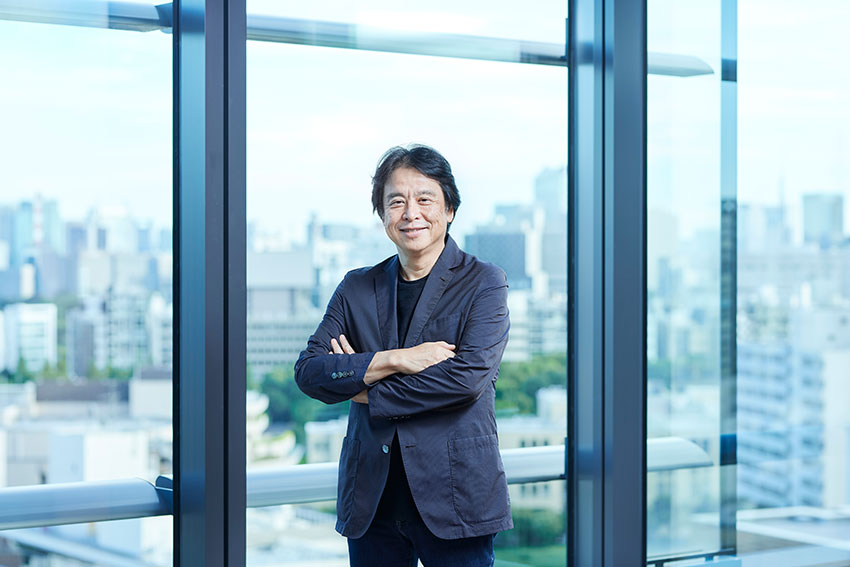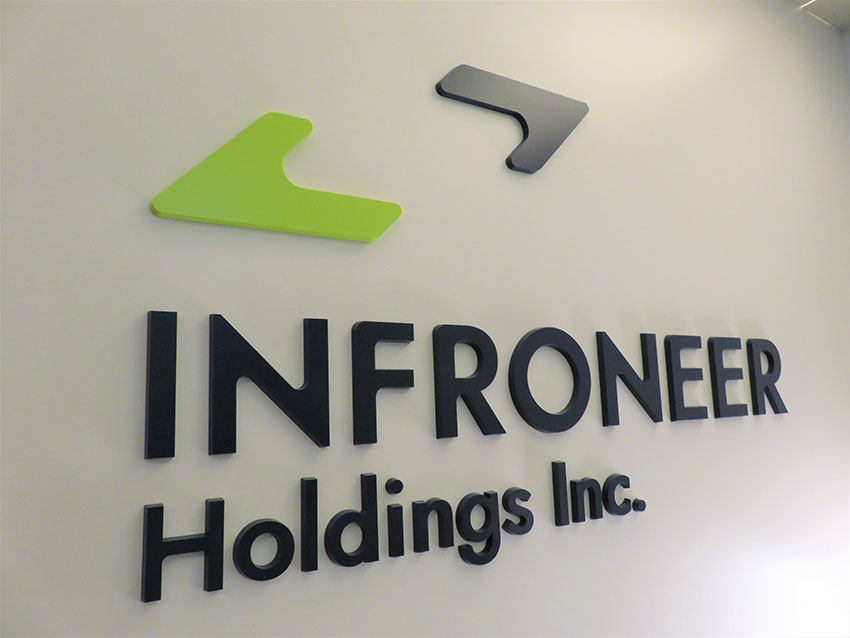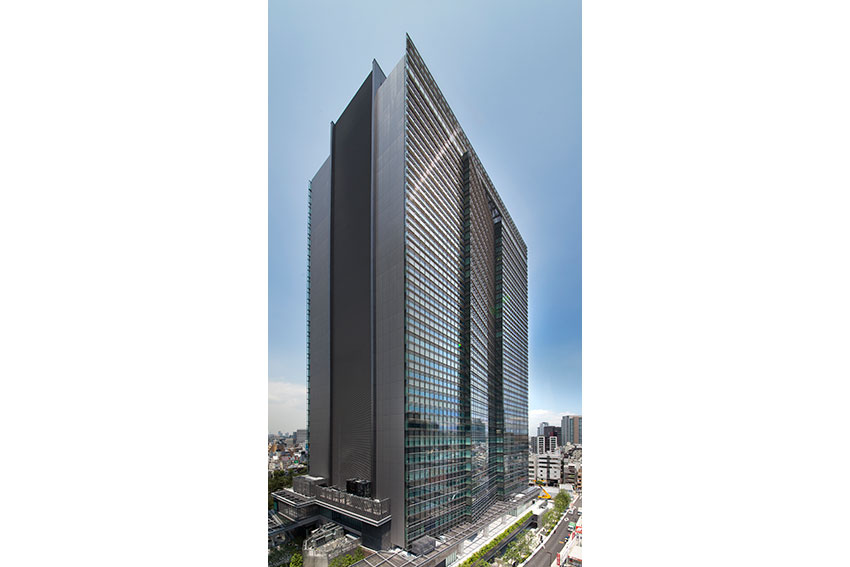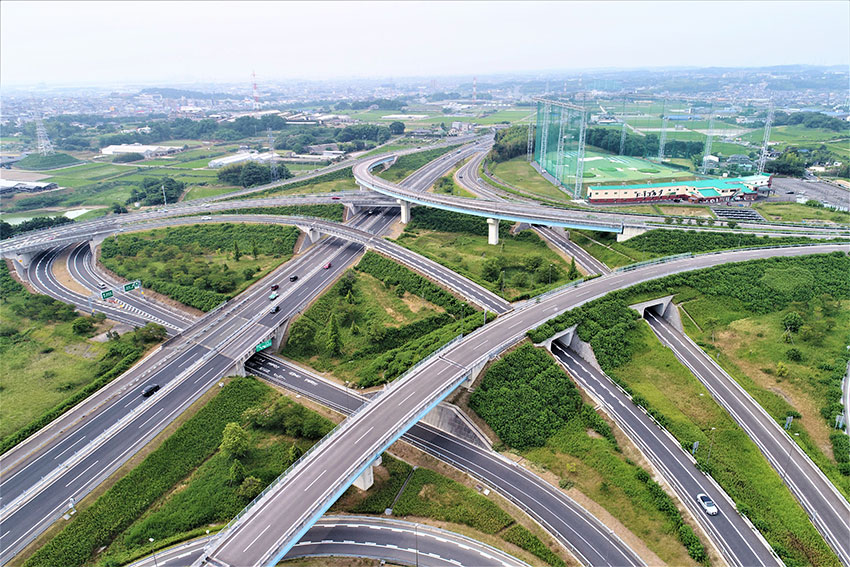There is a stiff price competition in the global construction industry, but President and CEO of Infroneer Holdings, Kazunari Kibe, explains what Japan can bring to the table and how his company’s services of fusion with engineering and finance make them stand out from the crowd.

As an international provider of large-scale construction solutions, how would you describe the competitiveness of Japanese construction firms on the global stage?
We are dealing with the issue of declining population. I think with that there's a huge burden on the taxation systems of any country where it's more and more difficult to take care of public infrastructure using taxes and funds allocated for such projects. I think that the construction sector for past 100 years and until now, has relied on a model whereby manufacturing and constructing things has been the sole focus. However, I believe that model is no longer the most viable one for the world that we live in today.
Particularly in Japan, when you consider the cost effectiveness of other Southeast Asian nations, I believe that we don't hold a sense of competitiveness and an edge in the global market when it comes to just constructing things. The reason for that is because when you're working in the way of monozukuri, or constructing things, it has the tendency to become commoditized. What I mean by that is that when you're working on this level of cost competitiveness, it ends up just becoming all about the price alone.
There's no point in us going to France and trying to compete there on price, and the same situation is happening in Asia as well. No matter what great technologies we may have under our belt or no matter how high the quality is that we can provide for our clients, eventually the clients are going to choose based on initial costs.
In construction, for example, when it comes down to stiff price competition the larger Chinese corporations – China State or China Railway – are of course going to win the bidding. In the project like the Dubai monorail, the large general construction company who joined the project eventually ended up in the red and they didn't make a profit from it. When it comes to these large overseas projects, Japanese companies are not profiting from them. This largely goes to show that no matter how superior your technology or your quality is, you cannot make a profit in the project of price competition. So where does Japan’s strength lie in that case?
Over the long term, companies begin to realize that when it comes to considering maintenance costs or looking at quality and seeing what products last longer, Japanese companies are a better investment. Another very big advantage for Japan is that it has very low interest rates. When it comes to Japanese companies, in financing for the initial cost of purchase of goods and other expenses, you must consider how the low interest rates are quite attractive within Asian countries.
I believe that rather than promoting the initial cost of purchase, we should instead be promoting the strengths of our projects in terms of their value over the following 20-30 years and show how over that period our offerings are actually more cost effective. From this point of view, the most optimized type of contracts are concessions and PPPs (Public-Private Partnerships). The word ‘concession’ originally came from France and that is best suited for this situation.
For example, the number one construction company in France, Vinci, is the most profitable construction company apart from the Chinese companies. They are the leader when it comes to overseas projects. If you look at their business model, 14% of their sales comes from concession-based contracts and it accounts for 56% of their operating income in FY2021. If you look at the way in which their business model operates, they're not necessarily profiting from the construction project itself.

Vinci is a great example of how a business model can be not just about making things, but about offering services involved, even when it comes to public engineering works. Japanese construction companies have no competitiveness in just making buildings. We at INFRONEER Holdings Group emphasize the services of fusion with engineering and finance. We would like to roll out this business model in the market not only in Japan but also in overseas. I believe that we are the leading Japanese company with the best track records in tis type of projects.

INFRONEER Holdings Inc. headquarters
Japan is known as a super aging society. Already 28% of our population is over 65 years old. Simultaneously, we have a declining birth rate meaning that there will be less than 100 million people by 2060. Now Japan has an advantage in this respect as the first aging society. Korea, Sweden, Greece, and Germany are going to follow suit in years to come. What advantages does that give you as a Japanese construction firm? What kind of services do you foresee can be provided for an aging society?
When you look at construction, it's not simply about making something. Through these PPP projects or concession-based contracts, you don't finish when the construction phase is completed, but in fact you become, in a sense, a manager of the project for the next 20-30 years. When it comes to completing the project or the building, it's just either win or lose. However, you end up becoming a kind of real business manager of the project itself.
Then you begin to think about what we in Japan call ‘3-way satisfaction’, which means that when you're taking care of something like this, everyone within the triangle of relationships needs to benefit. Not only the clients, but everyone involved, including the community as well as those who work for you. If you look at the world just in terms of winning or losing, then I don't think Japan can win in this situation and I think those companies coming from Western counties with more capitalist mindset would win.
When you consider the Japanese cultural ethos that we come from, I think the way in which we can win is when everyone wins and benefits. That means sharing win among all stakeholders. Those are projects and methods in which Japan has an advantage over the Western countries and other capitalist countries. Our desire is to provide and leverage the inherent strengths of Japan, which is the win-win-win model, and to harness our financing capabilities to become a truly viable and powerful player on the global stage.
When we go out into these different countries, it is very important to contribute to the education, training, and betterment of the local communities where we operate, and to conduct infrastructure projects where everyone in that society is able to benefit from the projects we propose. They would also benefit from the project that costs are much more affordable for those countries in the long-term perspective. However, if Japanese companies only try to win by the fact that they can provide materials in good quality or their expertise of high technology, they will neither be able to fulfill their goals nor win in the global arena. We established this holding company using this model in order to challenge and succeed in that way, both in Japan as well as in overseas.
A big theme of construction in years to come will be carbon neutrality. At the COP 26 last November a rule book was finalized as to how countries would be held accountable for delivering on climate action. Japan must reduce emissions by 46% by 2030 and we see companies like you who develop these ZEBs (Net Zero Energy Buildings). For example, your group company MAEDA CORPORATION was awarded for ICI General Center (Institute of Technology) for which they retrofitted ZEB technology. How are you progressing towards these new buildings of the future?
It's very similar to what I just mentioned. According to the COP agreement, carbon neutral is a goal that is globally agreed upon. There are three challenges. The first challenge is technological problems. The second is financing. The third is about changing of people’s mindset, which is also connected to morality. It's about when people can begin to accept the investment in renewable energies no matter how expensive the cost will be. For example, when you look at developing countries, it's very difficult for them to begin to understand this perspective of why they should contribute this movement and cut down of what the developed countries have polluted and wrecked things up until now.
For that perspective, as it is difficult to change people’s mindset, we may not necessarily be able to overcome the third challenge to achieve our carbon neutral target that I mentioned earlier, but I believe that we can overcome at least the remaining two challenges.
To do so, firstly we can contribute when it comes to the technology involved. As you already know, there are many different companies here in Japan, and we have the technology within our country to challenge and create carbon neutrality. Secondly, the costs and financing. The larger the projects become, the more important financing and financial capabilities are as Japan has low interest rates.
The challenge of diplomacy, ethics, moral standards, and all those issues of the heart cannot be resolved by ourselves. What we in Japan can really contribute towards a carbon neutral world are the other two elements. We can provide the necessary technologies with affordable prices.
With regards to PPP, I don't believe that this is a challenge that the Japanese can solve alone. In Japan we are working together with two French companies on PPPs and have a partnership with an American company in the entertainment industry. When it comes to the ports, we're working together with a Turkish company.
When competing for new projects in Asia and Africa, we don't plan on doing it alone, but will work together with very strong global companies in order to provide the financing capabilities and to establish successful operations there.
Honshu is located on the intersection of three tectonic plates and thus subject to frequent earthquakes. Your group has developed technology such as the MARC-H (Maeda Construction Super High-rise RC Apartment) system which includes technologies like the HIW method where you install a central column that absorbs seismic activity. Can you explain to our readers more about these technologies and how you're protecting these high-rise buildings that you install your technology with?
Anti-seismic technology is a big issue in Japan, but not in France or the UK. It's very interesting that there exist so many volcanoes but no problems. Turkey has similar issues, though, especially around the western area of Istanbul, so we're deploying our anti-seismic technologies in Turkey. We established a joint venture with MAEDA CORPORATION and a Turkish company in Istanbul exploiting this technology. In Istanbul we met all the regulatory regulations and standards that the city has in place. From this new fiscal year we're looking to export that technology and roll that out there.
Your group has been using Building Information Modeling (BIM) systems since 2007. Cutting down costs has become a huge issue during construction. Also, there's a labor shortage, not only here in Japan but everywhere in the world. Can you tell us a little more about how you're adopting your Total Process Management (TPM) which uses ICT to model buildings? How is that improving the efficiency of your operations?
When it comes to TPM technologies or the 3D CAD world, it's an extension of the IT that was already there. It’s about making more efficient what people can do utilizing technologies and different computer systems, but it wasn't necessarily to change the game with regards to the rules in place. For example, even when it comes to a cell phone, it's become more and more convenient, but the basic functional use of it, which is to make a phone call, doesn't change. And with emailing, for example, it's just a step up in terms of the function of writing a letter. Of course, it's more convenient than that now, but I don't believe that it's necessarily rewriting the rules of the main function or product.
I do, however, believe that when it comes to recent digitalization so called DX (Digital Transformation) here in Japan, that really changes the game. For example, when creating a blueprint or a design of a building, it was just utilizing computers to do it instead of by human hand, but what do you think can happen through digitalization? Are you able to also analyze past behavior and utilize deep learning?
Well, if there are 10 clients, then you see that maybe the desires of those ten clients are all different. Client A might prioritize cost, believing that the initial cost of purchase is the most important thing. Client B may think, even if it's the same price, the life cycle cost is what we need to value the most. Maybe client C prioritizes design over cost, and client D considers resilience and durability to be the most important. In the end, no matter A, B, C or D, they all want the most optimized type of construction and I believe that digitalization makes it possible for us to provide all these clients in an optimized way.
What happens is that all the engineering and design services – taking into account all the rules and regulations of different countries – can be provided simultaneously by utilizing these digital processes.
In April we announced a new contract, a partnership, with Accenture. We're looking to provide within the next 10 years over 30 billion JPY worth of projects of this nature. Before creating this new partnership with Accenture, we performed some research to understand the ways in which digitalization has been progressing in typical construction companies in overseas.
We felt that if they had some very interesting technologies, we would like to invest or outsource some contracts to them. But after doing that research we realized that they didn't necessarily have anything amazing to offer us. We thought “let's be a trailblazer and create the technology that could lead the race”.
In the UK for example, they don't have tolls on their freeways and highways in principle but in France they do. In Japan tolls are very expensive because of the ETC (Electronic Toll Collection) system. I think they use the similar system in France, but they use cameras instead of something like the ETC system and they can realize the cost down by 20%.
When it comes to data driven digital processes and technologies like that, not only is it something that is new and only emerging recently in various sectors, but when it comes to the construction sector, it's even more rare so I believe that we can play a leading role when it comes to innovation within this data driven digital world. We also partnered with Docomo as an accessory part of the project, and this is major project with Accenture. We're looking to ask Docomo to start thinking about a camera system that can be rolled out in Japan to cut down on costs and we're looking to apply it to a roadway in Aichi Prefecture which we are managing and operating. I believe that if this becomes the method used in Japan everyone is going to be so excited.

You have a presence in ASEAN countries. In the United States you have operations in Michigan and have a partner company, Denham-Blythe. We know that the latest Infrastructure Bill in the US was passed last November and included $1.2 trillion in incentives for upgrading US infrastructure. This includes $110 billion for roads and $39 billion to upgrade public transportation. What do you expect from this bill? Do you foresee many new projects and opportunities in your business with it?
Within the United States, the States of Indiana and Michigan are the states that are leading when it comes to applying new types of technologies within their infrastructural environments. Michigan has Chicago nearby and I think they're looking to leverage their financial capacity. In the state of Indiana, Indiana University is doing the most when it comes to research into PPP and they're the leading institution in academia regarding PPP. Mr. Pence was a former Indiana State governor. He is a Republican and Indiana state is famous for having the most PPPs. I don't have each figures in front of me with regards to the specific solutions there, but it does have an impact on the operation of our subsidiary in Michigan.
I was asked to speak about this topic three or four years ago and gave a lecture in Indiana and Michigan. I believe our project in Michigan is going to be along the lines of the PPP model. I think it's the kind of model which tries to minimize the pressure on the municipal taxation system and public financing system, and if you were looking to do an interesting project like this then the best place to find it would be in Indiana or Michigan.
Let's say we come back to interview you again in nine years' time for your tenth anniversary as a holding company. What would you like to tell us about your goals and dreams for the company in that timeframe, and what would you like to have achieved by then?
In Japanese we call our new business model “de-contracting”. Through this “de-contracting” model, we are going to participate in more renewable energy projects and PPPs. Currently 30% of our operating income comes from “de-contracting” business. However, ten years from now, we're looking to make that ratio 50/50.
0 COMMENTS